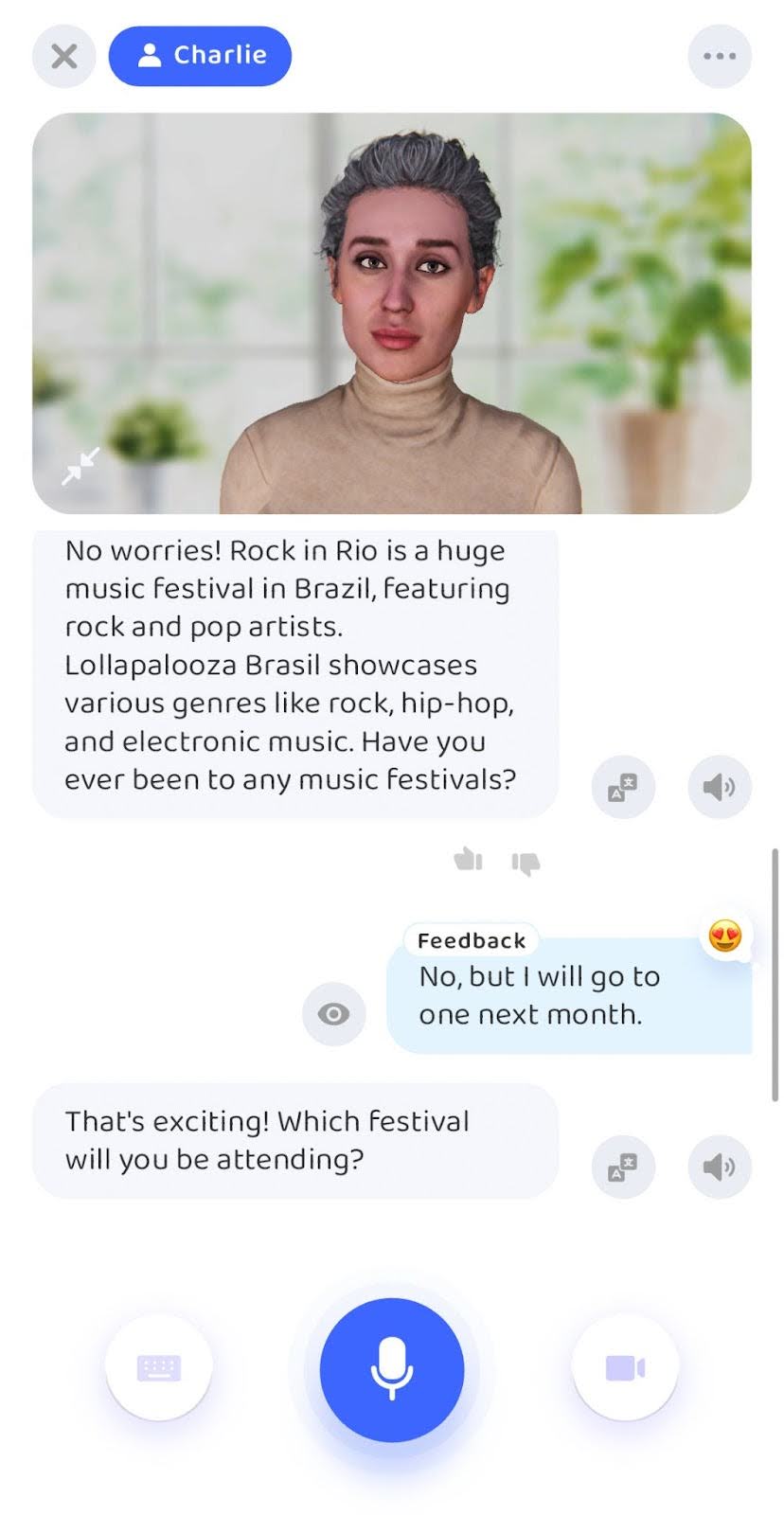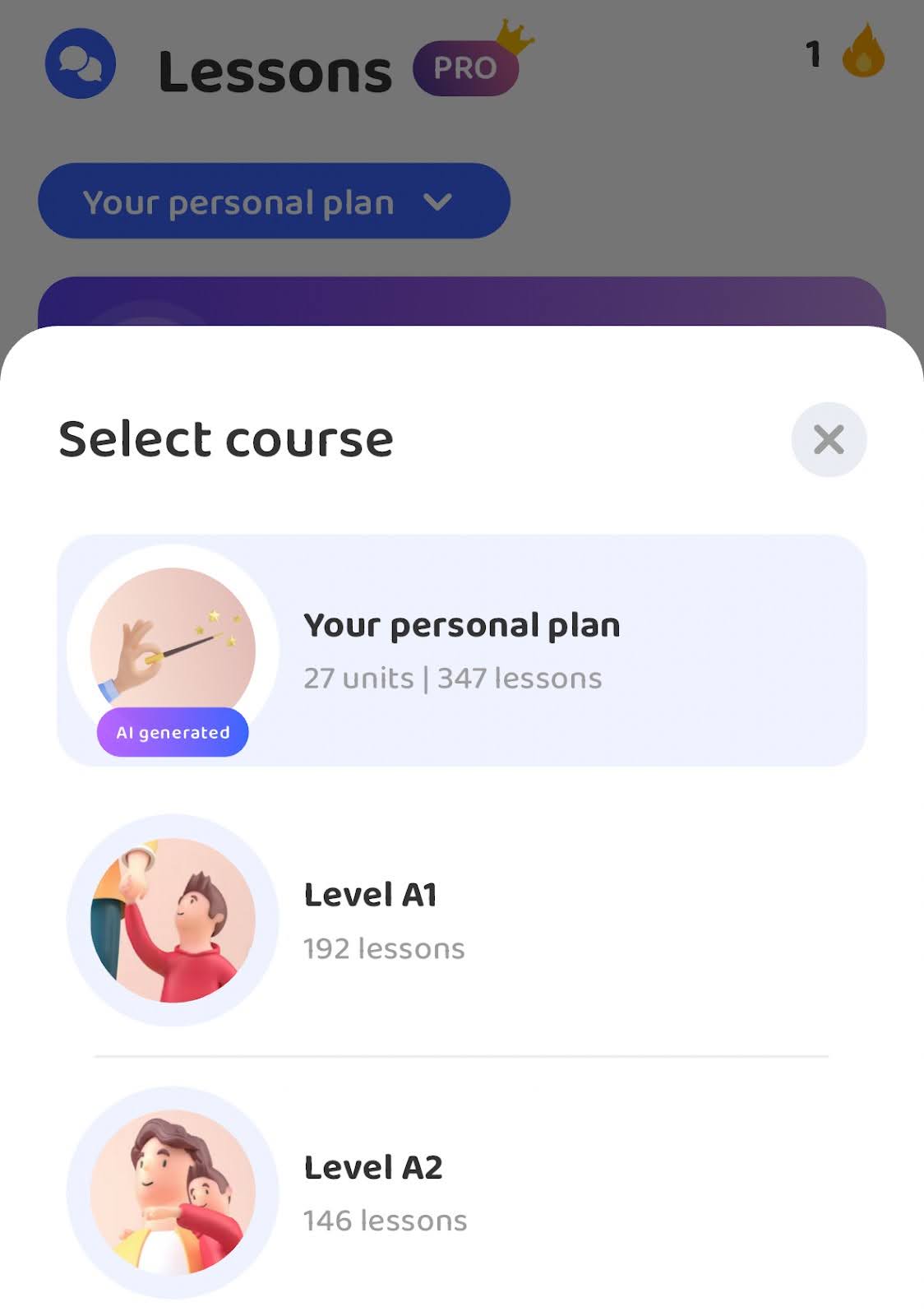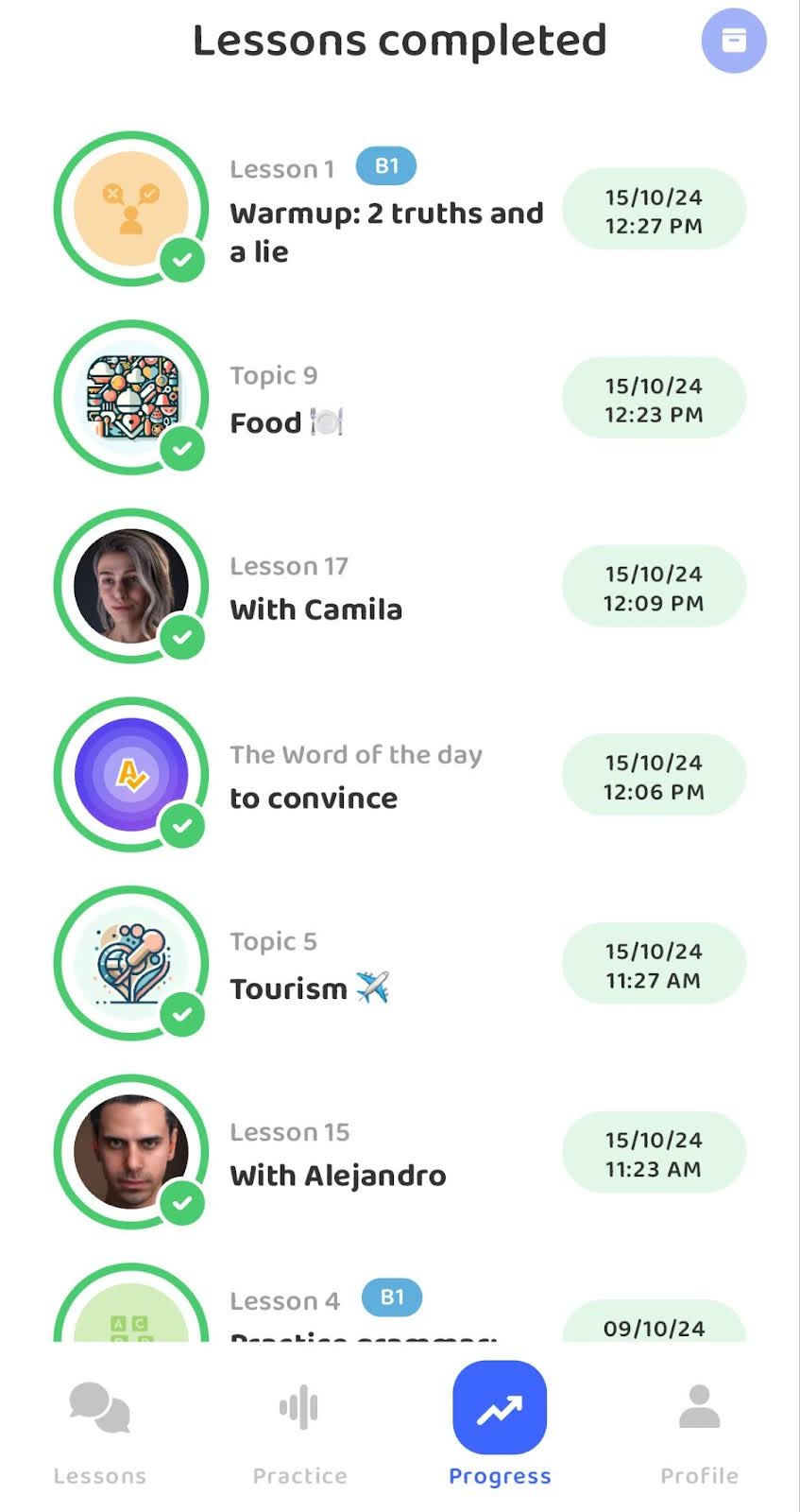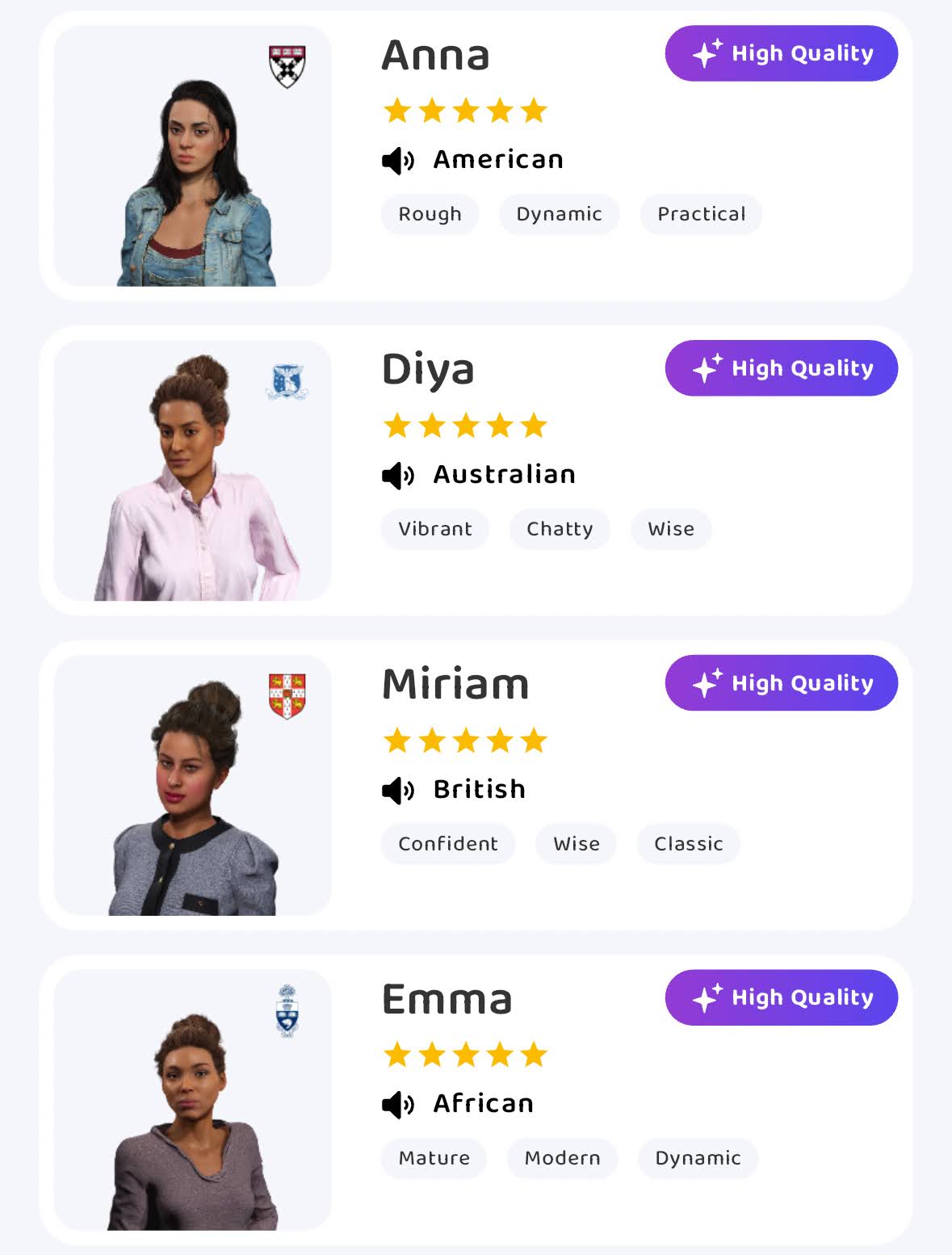Hello there! I’m Charlie, and I’ve seen it all—enthusiastic learners diving into English but getting tangled in the same mistakes. Not to worry! We’ll go over the most common pitfalls so you can avoid them and start learning English the right way. Let’s ensure your learning journey is smooth and successful!
1. Focusing Too Much on One Skill
Let’s get real for a second. Maybe you’re all about reading or grammar drills, but here’s the thing: English is more than just one skill. Focusing on just one area can leave you feeling like you’re missing out when it comes to the bigger picture. Sometimes my new students show a great understanding in reading but they can’t talk properly because of the lack of speaking practice.
To become truly proficient, you need a balanced approach that touches on listening, speaking, reading, and writing. After all, English in the real world doesn’t exist in neat little categories. Imagine understanding everything you read but freezing up when someone asks you a simple question! Not ideal, right?
Here’s why balance matters:
- Listening helps you tune in to real conversations and different accents.
- Speaking builds confidence so you can engage with others.
- Reading boosts your vocabulary and comprehension.
- Writing helps you structure your thoughts clearly.
My lessons integrate all of these skills, so you’re not just stuck in one lane. You’ll develop holistically, mastering each area of English without getting tangled in one!
2. Skipping Contextual Learning

Learning English without context is like trying to solve a puzzle without seeing the picture on the box. Sure, you can memorize vocabulary and grammar rules, but when you’re thrown into a real conversation, it’s a whole different ball game. Real life doesn’t come with subtitles or neatly spaced-out exercises.
Let’s say you’ve been drilling vocabulary for a restaurant scenario. You know words like “menu” and “order,” but when you actually step into a café and the barista says, “Would you like that to-go or for here?” you freeze. Where was that in the textbook?!
Contextual learning with Praktika makes conversations feel natural instead of forced. You start picking up on tone, slang, and common phrases people actually use. The other AI tutors and I help bridge the gap between textbook English and real-life English.
We put vocabulary and grammar into everyday scenarios, so you’re not just learning random words—you’re learning how to use them in ways that make sense in the real world!
3. Lack of Feedback from Your Tutor
If you’re not getting feedback, how do you know if you’re doing it right? It’s like shooting in the dark. I’ve seen so many learners go through endless exercises, only to keep repeating the same mistakes because no one’s there to point them out. Trust me, you don’t want to be stuck in that cycle.
Feedback is key to improving your English, and without it, you’re just guessing. Imagine practicing a pronunciation over and over, but still saying it wrong because no one corrected you. That’s where instant feedback becomes a lifesaver. It helps you understand your mistakes and correct them immediately. It also gives you clear direction on what to focus on next and you’re not stuck wondering if you’re doing it right—you know!
With Praktika’s AI tutors, like me, you get instant feedback on everything from pronunciation to grammar, so you’re always learning and improving as you go. No more guessing games!
4. Not Having a Clear Goal or Study Plan

Wandering through your lessons without a clear goal is like taking a road trip with no destination. You might be cruising along, but eventually, you’re going to feel lost. Believe me, I’ve seen this happen to so many learners who dive into English without knowing what they’re aiming for. The result? Frustration, confusion, and no real progress.
When I start tutoring new students, many of them express frustration. They’ve been learning English for a while, but without a proper study plan, they struggle to track their progress. Without a clear program tailored to your needs, goals, and current English level, it’s hard to measure improvement or know where you’re headed. If your tutor doesn’t provide a personalized study plan with clear milestones and deadlines for moving from one level to the next, it’s a red flag.
If you don’t have a goal, it’s hard to stay motivated. Learning English without a clear path often leaves you feeling like you’re spinning your wheels without getting anywhere. That’s where a solid study plan comes in.
Having a goal and plan helps you track your progress and see tangible improvements. They keep you motivated when you know exactly what you’re working towards. It’s also WAY easier to stay focused when there’s a clear direction.
At Praktika, we create personalized study plans based on your needs and goals. Whether you’re prepping for a job interview or just want to chat confidently with locals, we’ll help you stay on track and make real progress!
5. Choosing Group Classes When You Prefer 1-on-1
Group classes can be fun, but they’re not for everyone. Some learners thrive in a group setting, while others need more personalized attention to make real progress. I’ve seen it all—the learners who feel lost in a big class, unable to ask questions or get the support they need. And honestly, it’s hard to speak up when you’re surrounded by others who might be at a different level than you.
If you’re someone who prefers focused, one-on-one time, trying to learn in a group can be frustrating. You might not get the feedback you need, or worse, feel like you’re falling behind.
Here’s why 1-on-1 learning works better for some:
- Personalized attention: You get the tutor’s full focus and can ask as many questions as you need.
- Tailored lessons: Lessons can be adapted to your learning style and pace.
- Less pressure: No more worrying about speaking up in front of a group! Plus you can move at your own pace and ask your AI tutor to repeat everything anytime because we are available 24/7.
- Unlimited review: You can review each lesson as many times as you need and even download reviews of the lesson in PDF!

You can enjoy 1-on-1 learning with Prakitka so you get the attention and support you need. Your lessons are fully tailored to your pace, preferences, and goals. Whether you want to dive deeper into grammar or practice speaking without the pressure of an audience, we are there for you.
6. Focusing Only on Grammar Rules
I’ve said it before and I’ll say it again: grammar is important, but let’s not forget that English is about more than just rules! Trust me, you don’t want to be the person who knows every tense but forgets how to order an iced coffee.
The thing is, knowing the rules won’t help much if you can’t apply them. Speaking English is about using grammar naturally in all conversations.
Focusing only on grammar can hold you back. It doesn’t prepare you for real conversations and can cause you to overthink every sentence, which slows you down. It can also make English feel more like a chore than a language to enjoy.
At Praktika, we strike a balance. While we’ll absolutely help you with grammar, we focus on interactive practice to ensure you understand how to use it in real-life conversations. You’ll learn how to speak naturally and confidently, without getting stuck in grammar mode!
7. Forgetting About Pronunciation
You can memorize all the vocabulary and grammar in the world, but if people can’t understand you, it won’t get you very far. Pronunciation is a huge part of speaking English, and yet, I’ve seen many learners skip over it entirely. It’s easy to focus on writing and reading, but let’s not forget—you’ve got to speak too!
I’ve had learners who know a thousand words, but struggle to be understood because they haven’t worked on pronunciation. Trust me, it’s not something to overlook.
Here’s why pronunciation matters:
- Clarity: People will understand you better if your pronunciation is clear.
- Confidence: When you know you’re saying words correctly, you’ll feel more confident speaking.
- Communication: Pronunciation affects how smoothly conversations go, making sure nothing gets lost in translation.
With Praktika’s interactive conversations, I’m here to help you work on pronunciation in a fun, stress-free way. You’ll get immediate feedback and tips to make sure you’re sounding clear and natural. After all, being understood is half the battle!
8. Trying to Learn Too Fast
It’s tempting, isn’t it? You want to learn English yesterday and speed through lessons, thinking the faster you go, the sooner you’ll be fluent. I totally get it! But here’s the thing—rushing through your learning can actually do more harm than good. I’ve seen so many learners try to cram everything in, only to find that they’re forgetting what they learned just as quickly.
Language learning takes time, and that’s okay! It’s not a race. Trying to move too fast can leave gaps in your knowledge, and you might miss out on key concepts that will help you later on.
Why slowing down helps:
- Better retention: When you take your time, you’re more likely to remember what you’ve learned.
- Deeper understanding: You’ll grasp complex topics more thoroughly.
- Nice and steady: Learning at a steady pace reduces burnout and frustration.
At Praktika, we design lessons that progress at your speed, allowing you to grow steadily without feeling overwhelmed. You’ll get where you want to go—just one step at a time!
9. Not Practicing in Real-Life Scenarios
Real-life scenarios are where your English skills truly come alive. Whether you’re ordering food at a restaurant, asking for directions, or having a conversation with a coworker, these moments are what language learning is all about. If you’re not practicing in these kinds of situations, you’re missing out on the most important part of learning.
The more you practice, the more confident you’ll feel speaking. Real-life practice prepares you for surprises, as conversations are often full of unexpected twists and turns. Using English in actual scenarios helps reinforce everything you’ve learned, making it stick.
In the Praktika app, I’ll make sure you’re practicing English just as you’d use it in everyday life. I’ll help you feel ready for any conversation that comes your way!
10. Not Engaging with Different Accents

English isn’t spoken in just one accent! Whether you’re listening to a British, Australian, or American speaker, the way English sounds can change a lot. One of the biggest mistakes learners make is sticking to just one accent—usually the one they’re most familiar with—and then feeling lost when they hear someone with a different dialect. I’ve seen this happen time and again. You’re cruising along, feeling confident, and then—boom! A new accent throws you off.
The beauty of English is that it’s spoken all around the world, and each place adds its own flavor to the language. If you’re only used to one accent, you might struggle to understand speakers from other regions.
Learning to understand different accents will make you a more versatile speaker. Plus, it’s fun! Think of it as adding more layers to your English experience. With Praktika, we offer a range of accents, so you can get used to hearing and understanding English in all its wonderful forms. Whether it’s a crisp British accent or a laid-back Aussie twang, we’ll help you get the hang of it!
Did you recognize any mistakes you have made? Don’t worry, we can fix them together—reach out to me at Praktika and we’ll start working on it!

From Charlie
Charlie is your engaging AI English tutor from Praktika. With an MA in Modern Languages and a background in journalism, she blends professionalism with creativity. Now a freelance journalist, Charlie’s lessons integrate art, literature, and cultural topics—ideal for students seeking personal growth or business communication skills. Her supportive approach will boost your fluency and confidence.
